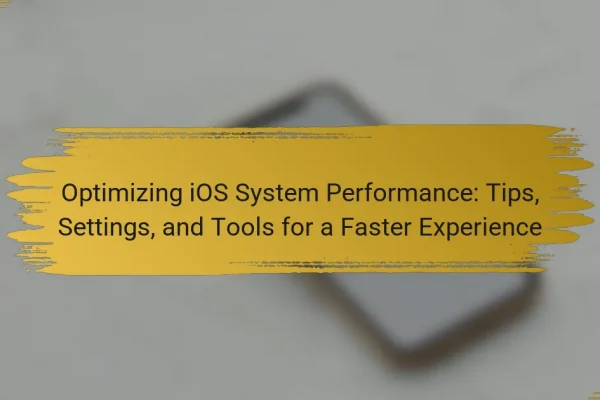
Speeding Up iOS Apps: Techniques, Tools, and User Settings for Enhanced Efficiency
Speeding up iOS apps involves various techniques, tools, and user settings aimed at enhancing app efficiency. Key techniques include optimizing images, reducing app size, and implementing lazy loading to improve loading times and performance. Developers can utilize profiling tools such as Xcode Instruments and the Xcode Debugger to identify performance bottlenecks, while third-party tools like…








